Studying medicine in Georgia presents a lucrative option for international students, offering top quality education in a multicultural environment. Universities like Tbilisi State Medical University provide English-taught programs with modern curricula and extensive clinical exposure. Medical degrees earned in Georgia are recognized globally, facilitating international career opportunities. The country's affordable tuition fees and low cost of living further enhance its appeal. Georgian medical education emphasizes practical training, ensuring students gain valuable hands-on experience.

Georgia, nestled at the crossroads of Eastern Europe and Western Asia, boasts a rich history, culture, and natural beauty. Its ancient cities, such as Tbilisi and Kutaisi, are adorned with charming cobblestone streets, ornate churches, and fortress walls steeped in centuries of tradition. Georgia's diverse landscapes encompass the towering peaks of the Caucasus Mountains, lush valleys of vineyards, and the dramatic shores of the Black Sea. Despite its tumultuous past, Georgia has emerged as a resilient and dynamic nation, embracing democracy and fostering economic growth. Its strategic location, coupled with ambitious reforms, positions Georgia as a bridge between Europe and Asia, attracting visitors and investors alike to explore its timeless allure and promising future.


| Intake | May – September & Jan - Feb |
|---|---|
| Score Required in 10+2 | 50% in PCB |
| NEET Requirement | Yes, NEET Qualified |
| Fees Structure | 4000 USD to 5500 Per Year |
| Hostel & Mess | 150 – 200 USD Per Month |
| Duration | 5+1 Years (Including Internship) |
| Medium of Instruction | English |
| Top Medical University | |
| Recognition | NMC, FAIMER, WFME, WHO, ECFMG, AMSE |
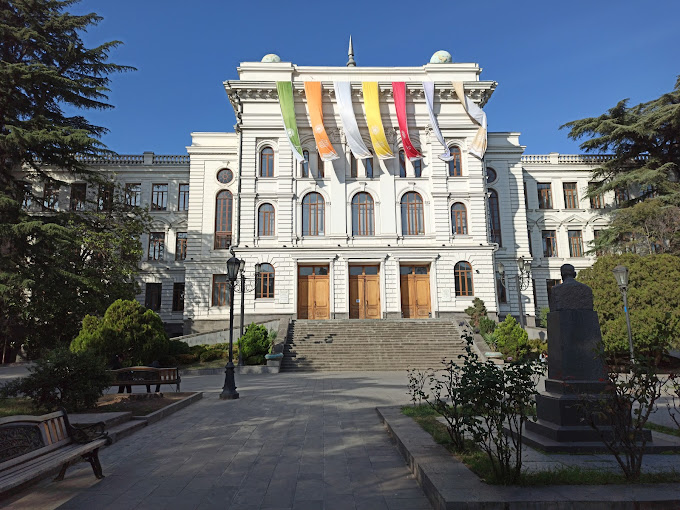
Ivane Javakhishvili Tbilisi State University (TSU) is one of the oldest and most prestigious educational institutions in Georgia. Established in 1918, it has a rich history and has played a significant role in shaping the country's intellectual landscape. The university is named after Ivane Javakhishvili, a prominent Georgian historian and public figure.
Ivane Javakhishvili Tbilisi State University offers a wide range of programs across various disciplines, including humanities, social sciences, natural sciences, and professional fields such as medicine. The university's medical program is particularly notable for its comprehensive curriculum, experienced faculty, and state-of-the-art facilities.
Ivane Javakhishvili Tbilisi State University’s medical program traces its roots back to the early 20th century when the university was founded. Over the years, it has evolved and expanded to meet the changing needs of society and advancements in medical science. Today, the program is known for its rigorous academic standards and commitment to producing highly skilled healthcare professionals.
The medical program at Ivane Javakhishvili Tbilisi State University offers a comprehensive curriculum that covers all aspects of medical education. Students undergo extensive training in basic sciences, clinical medicine, and practical skills. The curriculum is designed to provide a solid foundation in areas such as anatomy, physiology, biochemistry, pharmacology, pathology, and microbiology. In addition to classroom lectures, students also participate in laboratory sessions, clinical rotations, and research projects.
One of the strengths of Ivane Javakhishvili Tbilisi State University 's medical program is its experienced and dedicated faculty. The university attracts top medical professionals who are experts in their respective fields. These faculty members not only impart knowledge to students but also serve as mentors and role models. They are actively involved in research and clinical practice, ensuring that students receive up-to-date information and hands-on training.
Ivane Javakhishvili Tbilisi State University boasts modern facilities that enhance the learning experience for medical students. The university has well-equipped classrooms, laboratories, and libraries stocked with the latest books and journals. There are also simulation labs where students can practice clinical skills in a controlled environment. In addition, Ivane Javakhishvili Tbilisi State University has affiliations with leading hospitals and healthcare institutions where students can gain practical experience under the supervision of experienced physicians.
As part of their training, medical students at Ivane Javakhishvili Tbilisi State University undergo clinical rotations at affiliated hospitals and clinics. During these rotations, students work alongside healthcare professionals and gain practical experience in diagnosing and treating patients. This hands-on experience is invaluable for developing clinical skills and preparing students for their future careers as physicians.
TSU encourages medical students to engage in research activities and contribute to the advancement of medical science. The university has research centers and institutes dedicated to various fields of study, providing students with access to resources and opportunities for collaboration. Students have the chance to participate in research projects, present their findings at conferences, and publish papers in peer-reviewed journals.
Ivane Javakhishvili Tbilisi State University 's medical program is internationally recognized, and the university actively collaborates with institutions and organizations around the world. Through exchange programs and partnerships, students have the opportunity to broaden their horizons and gain exposure to different healthcare systems and cultures. These international collaborations enrich the learning experience and help students develop a global perspective on medicine.
Ivane Javakhishvili Tbilisi State University 's medical program is accredited by the relevant authorities and meets the highest standards of quality and excellence. Graduates of the program are eligible to sit for licensing exams and pursue further specialization in their chosen field. The university's reputation for producing well-trained and competent physicians is widely recognized both domestically and internationally.
Ivane Javakhishvili Tbilisi State University's medical program is renowned for its excellence in education, experienced faculty, modern facilities, and extensive clinical training. It provides students with a solid foundation in medical science and prepares them for successful careers in healthcare. With its strong reputation and commitment to academic excellence, TSU continues to be a top choice for aspiring medical professionals in Georgia and beyond.

Georgian American University (GAU) is a leading institution in Georgia that offers a diverse range of educational programs, with a particular focus on medical education. Established in 2001, the university has since grown into a prestigious institution known for its commitment to excellence in teaching, research, and community service. One of the notable faculties within GAU is the Medical University of Georgian American University, which provides high-quality medical education to students from Georgia and around the world.
The Medical University of Georgian American University is dedicated to training competent healthcare professionals who can meet the evolving needs of society. With a comprehensive curriculum and state-of-the-art facilities, the university aims to foster the intellectual, ethical, and professional development of its students. The medical programs offered at GAU are designed to equip graduates with the knowledge, skills, and attitudes necessary for successful careers in medicine.
The university's medical faculty boasts a team of highly qualified faculty members who are experts in their respective fields. These faculty members are committed to delivering engaging and interactive instruction, utilizing innovative teaching methods to enhance student learning. Additionally, the university encourages collaboration and interdisciplinary research, providing students with opportunities to engage in cutting-edge research projects that contribute to advancements in medical science and healthcare delivery.
One of the key strengths of the Medical University of Georgian American University is its emphasis on hands-on clinical training in their 350-bed teaching hospital. Recognizing the importance of practical experience in medical education, the university has established partnerships with leading hospitals and healthcare institutions across Georgia. Through these partnerships, students have access to clinical rotations and clerkships where they can apply their knowledge in real-world settings under the supervision of experienced healthcare professionals.
Furthermore, the university places a strong emphasis on professionalism and ethics in medical practice. Students are instilled with a sense of responsibility, compassion, and integrity, preparing them to uphold the highest standards of patient care and ethical conduct throughout their careers. The curriculum includes courses on medical ethics, communication skills, and cultural competency, ensuring that graduates are well-rounded healthcare providers capable of serving diverse populations with respect and empathy.
Georgian American University is a leading institution in medical education, known for its commitment to excellence, innovation, and service. With a rigorous curriculum, dedicated faculty, and hands-on clinical training opportunities, the university prepares students to excel in the dynamic and challenging field of medicine. By instilling values of professionalism, ethics, and social responsibility, the university equips graduates with the skills and knowledge needed to make meaningful contributions to healthcare and improve the lives of patients worldwide.
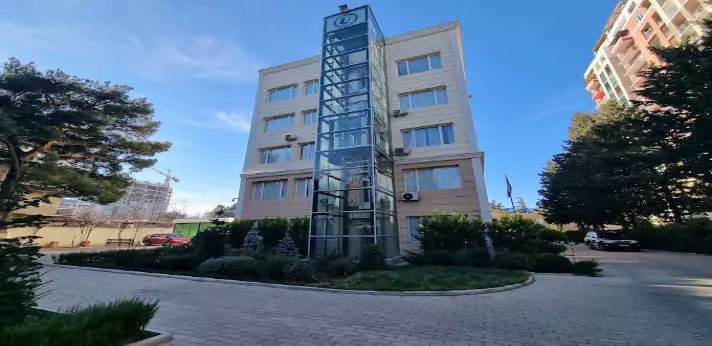
Founded in 2011, the European University in Tbilisi, Georgia, has emerged as a leading institution in medical education, offering comprehensive programs and fostering innovation in healthcare. Renamed the "European University" in 2018, it continues to uphold its commitment to excellence in medical education and research. This institution has become a beacon of quality education, attracting students from various corners of the globe, with its focus on academic rigor, modern facilities, and a diverse student body.
The Medical University of European University is renowned for its state-of-the-art infrastructure, cutting-edge research facilities, and a faculty comprising experienced professionals and scholars. The university offers a wide range of medical programs, including undergraduate, postgraduate, and doctoral degrees, catering to the diverse interests and career aspirations of students.
At the undergraduate level, the Medical University offers a Bachelor of Medicine, Bachelor of Surgery (MBBS) program, which provides students with a solid foundation in basic medical sciences, clinical skills, and patient care. The curriculum is designed to meet international standards and is constantly updated to incorporate the latest advancements in the field of medicine.
In addition to the MBBS program, the university also offers specialized undergraduate programs in areas such as nursing, pharmacy, and dentistry, providing students with opportunities to pursue careers in various healthcare disciplines.
At the postgraduate level, the Medical University offers a range of master's and doctoral programs, allowing students to specialize in their areas of interest and expertise. These programs are designed to equip students with advanced knowledge and skills in their respective fields and prepare them for leadership roles in healthcare, research, and academia.
The Medical University of European University is committed to fostering a culture of research and innovation, with numerous research centers and laboratories dedicated to advancing medical knowledge and addressing healthcare challenges. Faculty members are actively engaged in research activities, collaborating with national and international institutions to contribute to the global body of medical knowledge.
Furthermore, the university places a strong emphasis on practical training and clinical experience, with affiliations with leading hospitals and healthcare institutions across Georgia. Students have the opportunity to gain hands-on experience through clinical rotations, internships, and elective placements, allowing them to apply theoretical knowledge to real-world clinical scenarios and develop essential skills for their future careers.
The Medical University of European University is also dedicated to promoting global collaboration and cultural exchange, with a diverse student body comprising individuals from various countries and backgrounds. The university actively participates in international exchange programs, allowing students to study abroad and gain exposure to different healthcare systems and cultures.
Moreover, the Medical University is committed to providing students with comprehensive support services, including academic advising, career counseling, and student accommodation. The university's modern campus facilities include state-of-the-art lecture halls, libraries, laboratories, and recreational amenities, creating a conducive environment for learning and personal development.
The Medical University of European University stands as a premier institution in medical education, offering high-quality programs, world-class facilities, and opportunities for research and clinical experience. With its commitment to excellence, innovation, and diversity, the university continues to attract aspiring healthcare professionals from around the world, shaping the future of medicine and healthcare.
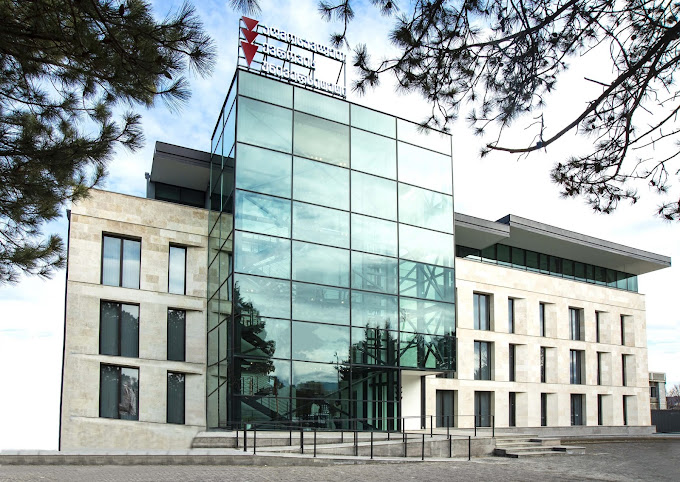
East European University (EEU) in Georgia is one of the prominent higher education institutions in the country, offering a variety of undergraduate and graduate programs across multiple disciplines. While EEU has a strong reputation in various fields, including business, law, and social sciences, its medical program is a notable offering that attracts students both locally and internationally.
East European University was founded in 1995 in Tbilisi, Georgia, with the aim of providing high-quality education that meets international standards. Over the years, the university has grown significantly, expanding its academic offerings, research activities, and infrastructure. EEU is committed to fostering academic excellence, innovation, and collaboration, with a focus on preparing students for successful careers in their chosen fields.
East European University's medical program is one of its flagship offerings, known for its comprehensive curriculum, experienced faculty, and modern facilities. The program is designed to train competent healthcare professionals who can meet the evolving needs of the healthcare industry and make meaningful contributions to society. Students undergo rigorous academic training and practical clinical experience to prepare them for the challenges of medical practice.
The medical curriculum at East European University's is designed to provide students with a solid foundation in basic sciences, clinical medicine, and practical skills. It covers a wide range of subjects, including anatomy, physiology, biochemistry, pharmacology, pathology, microbiology, and clinical medicine. The curriculum is structured to integrate theoretical knowledge with hands-on experience, ensuring that students develop the critical thinking, problem-solving, and communication skills necessary for effective medical practice.
EEU's medical faculty comprises experienced professionals with expertise in various medical specialties. They are dedicated to providing students with a supportive learning environment and personalized attention. Faculty members not only deliver lectures and lead discussions but also mentor students, supervise clinical rotations, and engage in research activities. Their diverse backgrounds and clinical experience enrich the learning experience and inspire students to excel in their studies.
East European University boasts modern facilities that enhance the learning experience for medical students. The university has well-equipped classrooms, lecture halls, laboratories, and libraries stocked with the latest books and journals. Additionally, there are simulation labs where students can practice clinical skills in a controlled environment, using advanced medical equipment and technology. EEU also has affiliations with leading hospitals and healthcare institutions where students can gain practical experience under the supervision of experienced physicians.
Clinical rotations are an integral part of East European University's medical program, allowing students to apply their knowledge and skills in real-world healthcare settings. During clinical rotations, students work alongside healthcare professionals, interact with patients, and participate in diagnosis and treatment procedures. They rotate through various departments and specialties, gaining exposure to different aspects of medical practice and developing a holistic understanding of patient care.
East European University's encourages medical students to engage in research activities and contribute to the advancement of medical science. The university has research centers and institutes dedicated to various fields of study, providing students with opportunities to participate in research projects, present their findings at conferences, and publish papers in peer-reviewed journals. Research involvement not only enhances students' academic credentials but also fosters critical thinking, problem-solving, and innovation.
East European University's medical program is internationally recognized, and the university actively collaborates with institutions and organizations around the world. Through exchange programs, joint research projects, and partnerships, students have the opportunity to gain exposure to different healthcare systems, cultures, and medical practices. International collaboration enriches the learning experience, broadens students' perspectives, and prepares them for global careers in healthcare.
East European University's medical program is accredited by the relevant authorities in Georgia and meets international standards of quality and excellence. Graduates of the program are eligible to sit for licensing exams and pursue postgraduate training and specialization in their chosen fields. The university's commitment to academic excellence and student success has earned it recognition both domestically and internationally.
East European University's medical program is known for its excellence in education, experienced faculty, modern facilities, and extensive clinical training. The program provides students with a solid foundation in medical science and prepares them for successful careers in healthcare. With its strong reputation and commitment to academic excellence, EEU continues to attract aspiring medical professionals from Georgia and around the world.
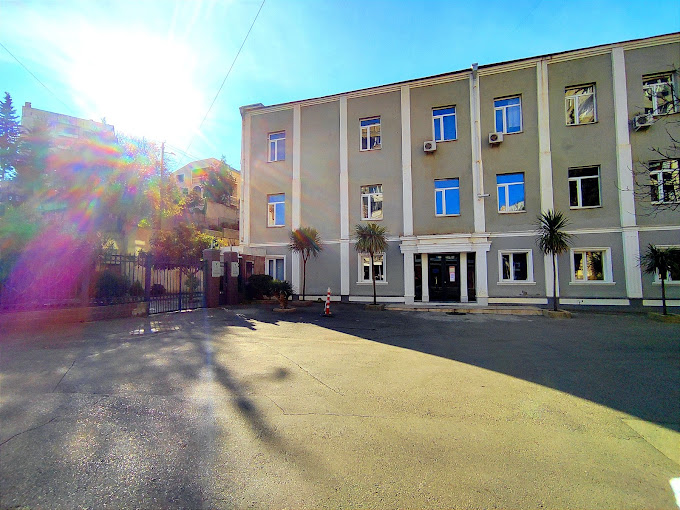
Geomedi University in Georgia is a relatively new but rapidly growing institution that has gained recognition for its medical programs and commitment to providing quality education in the healthcare field. Founded in 1998, Geomedi University has quickly established itself as a reputable institution both domestically and internationally, particularly in the realm of medical education.
Geomedi University was established with the vision of offering high-quality education in various disciplines, with a particular focus on medicine and healthcare. Since its founding, the university has been dedicated to fostering innovation, research, and excellence in education. It has continuously expanded its academic offerings and infrastructure to meet the growing demand for healthcare professionals in Georgia and beyond.
The medical program at Geomedi University is one of its flagship offerings and is highly regarded for its comprehensive curriculum, experienced faculty, and modern facilities. The program is designed to equip students with the knowledge, skills, and clinical experience necessary to excel in the field of medicine. It covers a wide range of subjects, including basic sciences, clinical medicine, and specialized areas of study.
Geomedi University's medical curriculum is designed to meet international standards and prepare students for successful careers in healthcare. The program consists of classroom lectures, laboratory sessions, clinical rotations, and research projects. Students receive instruction in foundational sciences such as anatomy, physiology, biochemistry, pharmacology, and pathology, as well as clinical disciplines including internal medicine, surgery, pediatrics, obstetrics, and gynecology.
The faculty members at Geomedi University are highly qualified professionals with extensive experience in their respective fields. They are dedicated to providing students with a supportive learning environment and are committed to their academic and professional development. Many faculty members are actively involved in research and clinical practice, bringing real-world expertise and insights into the classroom.
Geomedi University boasts modern facilities that enhance the learning experience for medical students. The university has well-equipped classrooms, laboratories, and libraries stocked with the latest books and journals. Additionally, there are simulation labs where students can practice clinical skills in a controlled environment, preparing them for real-world patient care scenarios.
Clinical rotations are an integral part of Geomedi University's medical program, allowing students to gain hands-on experience in healthcare settings under the supervision of experienced physicians and healthcare professionals. Students have the opportunity to rotate through various departments and specialties at affiliated hospitals and clinics, applying their knowledge and skills in real clinical settings.
Geomedi University encourages medical students to engage in research activities and contribute to the advancement of medical science. The university has research centers and institutes dedicated to various fields of study, providing students with opportunities to participate in research projects, present their findings at conferences, and publish papers in peer-reviewed journals.
Geomedi University has a strong emphasis on international collaboration and partnerships. The university collaborates with leading institutions and organizations around the world to exchange knowledge, resources, and best practices in medical education and research. Through exchange programs and international conferences, students have the opportunity to broaden their perspectives and gain exposure to different healthcare systems and cultures.
Geomedi University's medical program is accredited by the relevant authorities in Georgia and meets international standards of quality and excellence. Graduates of the program are eligible to sit for licensing exams and pursue further specialization in their chosen field. The university's commitment to academic excellence and student success has earned it recognition both domestically and internationally.
Geomedi University's medical program is known for its quality education, experienced faculty, modern facilities, and emphasis on clinical training and research. The university provides students with a solid foundation in medical science and prepares them for successful careers in healthcare. With its commitment to excellence and innovation, Geomedi University continues to attract aspiring medical professionals from Georgia and around the world.
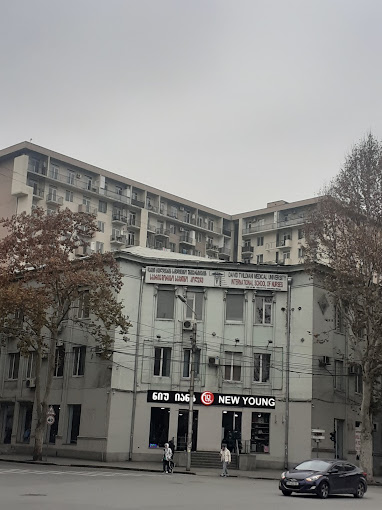
David Tvildiani Medical University (DTMU), located in Tbilisi, Georgia, stands as a beacon of medical education excellence in the region. Established in 1992, it has garnered recognition for its commitment to providing high-quality medical education and producing competent healthcare professionals. This institution has a rich history, a diverse student body, a comprehensive curriculum, and state-of-the-art facilities, all of which contribute to its esteemed reputation.
The roots of David Tvildiani Medical University trace back to the aftermath of the collapse of the Soviet Union when Georgia embarked on a path of reform and development in various sectors, including education. The founders of DTMU envisioned a medical institution that could meet the growing demand for skilled healthcare professionals in the country and beyond. Thus, in 1992, the university was established, named in honor of David Tvildiani, a prominent Georgian physician and educator.
David Tvildiani Medical University is situated in the heart of Tbilisi, the capital city of Georgia, providing students with a vibrant and culturally rich environment. The university campus encompasses modern facilities equipped with advanced technologies, including laboratories, lecture halls, libraries, and simulation centers. These facilities enable students to engage in hands-on learning experiences and practical training, essential for their professional development.
One of the distinctive features of David Tvildiani Medical University is its commitment to internationalization and diversity. The university attracts students from various countries worldwide, fostering a multicultural learning environment. This diversity not only enriches the educational experience but also promotes cross-cultural understanding and collaboration among future healthcare professionals.
The academic programs offered at David Tvildiani Medical University are designed to meet international standards and requirements, ensuring that graduates are well-prepared to pursue careers in medicine globally. The university offers undergraduate and graduate programs in medicine, dentistry, pharmacy, and nursing, providing students with a wide range of options to pursue their interests and aspirations in the healthcare field.
The curriculum at David Tvildiani Medical University is comprehensive and dynamic, integrating theoretical knowledge with practical skills training. Students engage in rigorous coursework covering fundamental medical sciences, clinical disciplines, and research methodologies. Additionally, they have opportunities for clinical rotations in affiliated hospitals and healthcare institutions, where they gain hands-on experience under the supervision of experienced practitioners.
David Tvildiani Medical University is committed to fostering research and innovation in healthcare, encouraging students and faculty members to engage in scholarly activities and contribute to the advancement of medical knowledge. The university collaborates with national and international partners to facilitate research projects and initiatives, providing students with valuable opportunities to participate in cutting-edge research.
Furthermore, David Tvildiani Medical University is committed to ensuring accessibility and affordability of education, offering scholarships, financial aid, and flexible payment options to deserving students. The university strives to remove barriers to education and create opportunities for talented individuals from diverse backgrounds to pursue their dreams of becoming healthcare professionals.
DTMU has earned accreditation and recognition from reputable medical councils and organizations, attesting to the quality and credibility of its programs. Graduates of DTMU are highly regarded in the healthcare industry and have successfully pursued careers in various medical specialties and fields worldwide.
David Tvildiani Medical University stands as a leading institution for medical education in Georgia, offering comprehensive programs, state-of-the-art facilities, and a supportive learning environment. With its commitment to excellence, diversity, and innovation, DTMU continues to shape the future of healthcare by producing competent and compassionate healthcare professionals who make meaningful contributions to society.
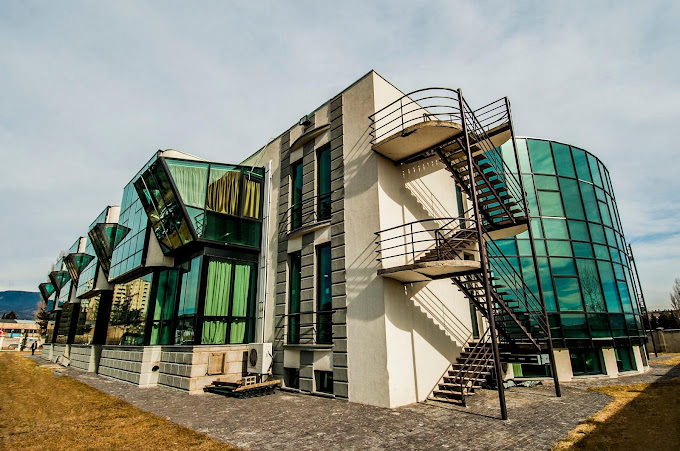
Grigol Robakidze University is one of the prominent medical universities located in Tbilisi, the capital city of Georgia. Established in 1992, it has grown to become a leading institution in the field of medical education and research within the country and beyond. This institution is named after Grigol Robakidze, a renowned Georgian writer and philosopher, reflecting its commitment to intellectual pursuit and academic excellence.
GrigolRobakidze University was founded with the aim of providing high-quality education in various disciplines, including medicine, pharmacy, dentistry, and healthcare management. Over the years, it has expanded its academic offerings and infrastructure to cater to the evolving needs of students and the healthcare industry.
The university offers a wide range of undergraduate, graduate, and postgraduate programs in medicine and healthcare-related fields. The Faculty of Medicine is particularly renowned for its rigorous curriculum, experienced faculty members, and state-of-the-art facilities. Students have access to modern laboratories, research centers, and clinical training sites, enabling them to gain practical experience and develop clinical skills under the guidance of seasoned professionals.
Grigol Robakidze University boasts a diverse faculty comprising accomplished academics, clinicians, and researchers who are actively engaged in advancing knowledge and innovation in their respective fields. Faculty members collaborate on various research projects, publish scholarly articles, and participate in international conferences, contributing to the global body of scientific knowledge.
The university has established partnerships with numerous educational institutions, hospitals, and healthcare organizations worldwide, fostering international collaboration and exchange programs. Through these partnerships, students and faculty members have the opportunity to participate in exchange programs, joint research initiatives, and academic conferences, enhancing their cross-cultural understanding and academic experience.
Grigol Robakidze University is equipped with modern infrastructure and facilities designed to support the academic and extracurricular needs of students. The campus features lecture halls, libraries, computer labs, student lounges, and recreational facilities, creating a conducive environment for learning, research, and personal development. Additionally, the university provides student support services, including counseling, career guidance, and extracurricular activities, to promote holistic development and well-being.
One of the key strengths of Grigol Robakidze University is its emphasis on clinical training and practice. Students have the opportunity to gain hands-on experience in various healthcare settings, including hospitals, clinics, and community health centers. Under the supervision of experienced healthcare professionals, students participate in patient care, diagnostic procedures, treatment planning, and surgical interventions, preparing them for successful careers in medicine and healthcare.
Grigol Robakidze University is recognized by the Georgian Ministry of Education and Science and accredited by relevant regulatory bodies in Georgia. Its medical programs are also recognized internationally, allowing graduates to pursue further education or employment opportunities in other countries. The university's commitment to academic excellence, ethical standards, and professional integrity has earned it a reputation for producing competent and compassionate healthcare professionals.
GrigolRobakidze University stands as a leading institution in medical education and research in Georgia, offering comprehensive academic programs, world-class facilities, and opportunities for international collaboration and community engagement. With its commitment to excellence and innovation, the university plays a vital role in shaping the future of healthcare and contributing to the well-being of society.
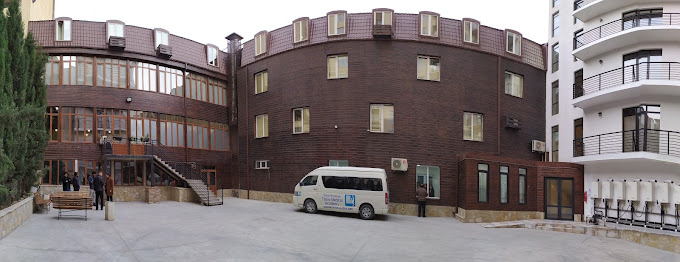
The PetreShotadze Tbilisi Medical Academy (PSTMA) in Georgia is a renowned institution dedicated to medical education, research, and healthcare delivery. Founded in 1992, it has evolved into a leading medical university in the region, known for its commitment to excellence in training healthcare professionals and advancing medical science. With a rich history, state-of-the-art facilities, and a diverse student body, PSTMA plays a pivotal role in shaping the future of healthcare in Georgia and beyond.
Established in the aftermath of Georgia's independence, PetreShotadze Tbilisi Medical Academy emerged with a mission to address the growing need for high-quality medical education and healthcare services in the country. Named after PetreShotadze, a prominent Georgian physician, the academy is dedicated to his legacy of service and innovation in medicine. Its mission encompasses education, research, and community engagement, aiming to produce competent healthcare professionals, contribute to medical knowledge, and improve public health outcomes.
PetreShotadze Tbilisi Medical Academy offers a wide range of undergraduate and postgraduate programs in various medical disciplines, including medicine, dentistry, pharmacy, nursing, and public health. The curriculum is designed to integrate theoretical knowledge with practical skills, ensuring graduates are well-prepared to meet the challenges of modern healthcare practice. The academy employs a learner-centered approach, fostering critical thinking, communication skills, and ethical awareness among students.
The faculty at PetreShotadze Tbilisi Medical Academy comprises experienced clinicians, researchers, and educators dedicated to excellence in teaching and scholarship. Many faculty members are actively involved in research across diverse areas such as infectious diseases, oncology, cardiology, and neuroscience. The academy fosters a culture of innovation and collaboration, providing students with opportunities to engage in research projects and scientific inquiry.
PetreShotadze Tbilisi Medical Academy boasts modern facilities equipped with advanced technology to support teaching, research, and clinical practice. These include lecture halls, laboratories, simulation centers, and libraries stocked with extensive medical literature and electronic resources. Clinical training is facilitated through partnerships with leading hospitals and healthcare institutions, offering students hands-on experience in real-world settings.
PSTMA is actively engaged in providing healthcare services to the community through its affiliated hospitals, clinics, and outreach programs. Students participate in clinical rotations and community health projects, gaining practical experience while serving the needs of underserved populations. The academy collaborates with governmental and non-governmental organizations to address public health challenges and promote health equity.
PSTMA actively fosters international collaborations and exchange programs with leading academic institutions worldwide. These partnerships facilitate student and faculty exchanges, joint research initiatives, and cross-cultural learning experiences, enriching the academic and cultural diversity of the academy and fostering global perspectives in healthcare education and practice.
The PetreShotadze Tbilisi Medical Academy stands as a beacon of excellence in medical education and healthcare in Georgia. Through its commitment to academic rigor, research excellence, and community engagement, PSTMA plays a vital role in shaping the future of healthcare professionals and improving health outcomes for all.

Tbilisi State Medical University (TSMU), is one of the oldest and most prestigious medical universities in Georgia. Founded in 1918, it has a rich history of providing high-quality medical education, conducting groundbreaking research, and delivering excellent healthcare services. With a commitment to academic excellence, innovation, and community service, TSMU has established itself as a leading institution in medical education and healthcare in the region.
Tbilisi State Medical University is located in the capital city of Tbilisi, offering a vibrant and conducive environment for learning and research. The university's campus is equipped with state-of-the-art facilities, including modern lecture halls, research laboratories, libraries, and medical centers, providing students with the resources they need to excel in their studies and research endeavors.
One of the key strengths of Tbilisi State Medical University is its faculty, which comprises highly qualified professors, researchers, and medical professionals who are experts in their respective fields. They are dedicated to providing students with a comprehensive education that combines theoretical knowledge with practical training, preparing them to meet the challenges of modern medicine effectively.
Tbilisi State Medical University offers a wide range of undergraduate, graduate, and postgraduate programs in various medical disciplines, including medicine, dentistry, pharmacy, nursing, public health, and biomedical sciences. The curriculum is designed to meet international standards and is regularly updated to incorporate the latest advancements in medical science and technology.
The university places a strong emphasis on research and innovation, encouraging both faculty and students to engage in cutting-edge research projects that contribute to the advancement of medical knowledge and the improvement of healthcare practices. TSMU collaborates with other academic institutions, research organizations, and healthcare facilities both domestically and internationally to foster research partnerships and exchange expertise.
Tbilisi State Medical University also has a strong international presence, attracting students and faculty from around the world. The university offers numerous opportunities for international collaboration, including student exchange programs, joint research projects, and academic partnerships with universities and institutions worldwide.
Tbilisi State Medical University is recognized by international medical regulatory bodies, ensuring that its graduates meet the necessary standards to practice medicine globally. The university's medical programs are accredited by relevant accreditation bodies, and its graduates are eligible to take licensing examinations in various countries, facilitating their career prospects and professional mobility.
Tbilisi State Medical University (TSMU) is a prestigious institution with a long-standing reputation for academic excellence, research innovation, and community service. With its commitment to providing high-quality medical education, conducting groundbreaking research, and delivering excellent healthcare services, TSMU continues to play a vital role in advancing medical science, improving healthcare outcomes, and training the next generation of healthcare professionals in Georgia and beyond.
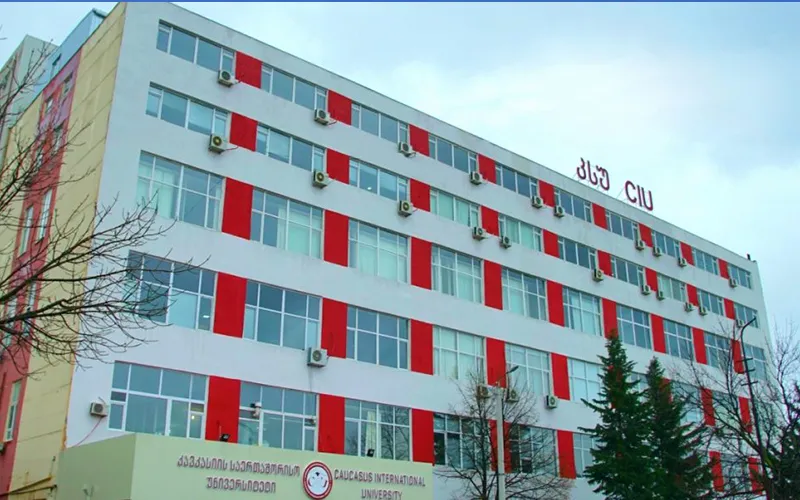
The Medical University of Caucasus (MUC) is a prominent institution located in Tbilisi, the capital city of Georgia. Established in 1995, MUC has emerged as a leading medical education provider in the Caucasus region, known for its high-quality education, modern infrastructure, and commitment to academic excellence. With a diverse student body and a team of experienced faculty members, the university offers a range of undergraduate and postgraduate programs in various fields of medicine and healthcare. This comprehensive review delves into the history, infrastructure, academic programs, faculty, research initiatives, and student life at the Medical University of Caucasus.
The Medical University of Caucasus traces its origins to the post-Soviet era when there was a pressing need for high-quality medical education in Georgia. Established in 1995, MUC began its journey with a vision to become a center of excellence in medical education and research in the Caucasus region. Over the years, the university has expanded its academic offerings, invested in modern facilities, and built partnerships with international institutions to enhance its standing in the field of medical education.
The Medical University of Caucasus boasts state-of-the-art infrastructure designed to facilitate modern medical education and research. The university campus is equipped with lecture halls, laboratories, libraries, and simulation centers that provide students with hands-on training and practical experience. The campus also includes accommodation facilities for students, ensuring a comfortable living environment conducive to learning.
The Medical University of Caucasus offers a wide range of academic programs catering to the diverse interests and career aspirations of students. The undergraduate programs include Bachelor of Medicine, Bachelor of Surgery (MBBS), Bachelor of Dental Surgery (BDS), Bachelor of Pharmacy, and Bachelor of Nursing. At the postgraduate level, MUC offers Master of Science (MSc) and Doctor of Medicine (MD) programs in various specialties such as internal medicine, surgery, pediatrics, obstetrics, and gynecology. The university also provides opportunities for continuing medical education and professional development through its certificate courses and workshops.
Research is an integral part of the academic culture at the Medical University of Caucasus. The university encourages faculty and students to engage in research activities aimed at advancing medical knowledge and addressing healthcare challenges. MUC supports interdisciplinary research collaborations and provides resources for conducting cutting-edge research in areas such as biomedical sciences, clinical medicine, public health, and healthcare management.
The Medical University of Caucasus has established partnerships with leading international institutions to enhance its global outlook and promote academic exchange. Through collaboration agreements and student exchange programs, MUC offers students the opportunity to gain international exposure, broaden their horizons, and build networks with peers and professionals from around the world. These collaborations also facilitate research collaborations and joint projects aimed at addressing global health challenges.
The Medical University of Caucasus stands as a beacon of excellence in medical education and research in the Caucasus region. With its modern infrastructure, comprehensive academic programs, experienced faculty, vibrant student life, and international collaborations, MUC continues to attract students aspiring to pursue a career in healthcare. As it looks towards the future, the university remains committed to its mission of producing competent healthcare professionals equipped to meet the evolving needs of society.
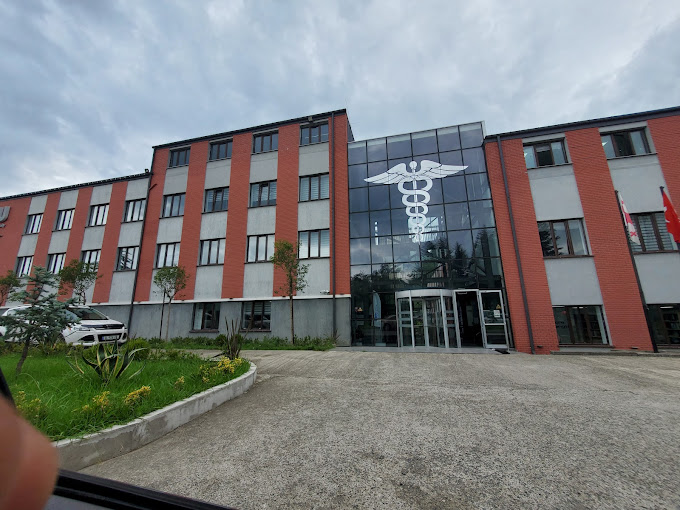
The Batumi International University (BAU International University) in Georgia is a leading institution for medical education in the Caucasus region. Established with a vision to provide high-quality medical education and contribute to the healthcare sector, it has emerged as a prominent destination for students aspiring to become doctors. This comprehensive review will delve into various aspects of the medical program offered by BAU International University, including its history, curriculum, faculty, facilities, research opportunities, and student life.
The BAU International University, located in Batumi, Georgia, was founded in 1992 as a private higher education institution. Over the years, it has evolved into a dynamic university with a focus on innovation and excellence in education. The medical program offered by BAU is highly regarded, attracting students from diverse backgrounds and nationalities.
The curriculum at BAU International University is designed to meet international standards and prepare students for a successful career in medicine. It covers a wide range of subjects, including basic sciences, clinical medicine, and practical skills. Students undergo rigorous training in anatomy, physiology, biochemistry, pharmacology, pathology, microbiology, and other relevant disciplines. The curriculum also emphasizes the importance of critical thinking, problem-solving, and communication skills, essential for healthcare professionals.
One of the key strengths of the medical program at BAU is its faculty members who are highly qualified and experienced in their respective fields. They are dedicated to providing students with the best possible education and support to help them succeed. The faculty members employ innovative teaching methods, including lectures, small group discussions, laboratory sessions, and clinical rotations, to ensure that students receive a well-rounded education.
The university's state-of-the-art facilities further enhance the learning experience for students. It boasts modern classrooms, laboratories, simulation centers, and a well-equipped library with a vast collection of medical literature and resources. The university also affiliated with numerous leading hospitals, clinics and healthcare institutions in Batumi, providing students with opportunities to gain clinical training and hands-on experience.
In addition to the core curriculum, BAU International University offers various research opportunities for students interested in advancing medical knowledge. The university encourages and supports research initiatives in various fields of medicine, providing students with access to resources, mentorship, and funding opportunities. Students have the chance to collaborate with faculty members on research projects, participate in conferences, and publish their findings in peer-reviewed journals.
Moreover, BAU International University is committed to supporting its students throughout their academic journey and beyond. The university offers various support services, including academic advising, counseling, and career guidance, to help students navigate challenges and achieve their goals. Additionally, the university has a strong alumni network, with graduates pursuing successful careers in medicine worldwide.
The medical program at BAU International University in Batumi, Georgia, stands out for its comprehensive curriculum, experienced faculty, modern facilities, research opportunities, and vibrant student life. It provides students with the knowledge, skills, and experiences they need to excel in the field of medicine and make a positive impact on global healthcare. Aspiring medical professionals looking for a quality education in a multicultural environment will find BAU International University to be an excellent choice for their academic journey.
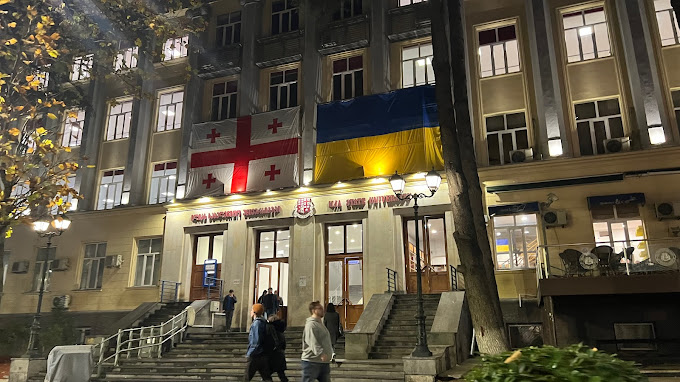
The Medical University of Ilia State University (MIUS) in Georgia stands as a beacon of excellence in medical education, research, and healthcare delivery in the region. Established with a commitment to fostering innovation, promoting academic rigor, and addressing societal health needs, MIUS has emerged as a prominent institution, both nationally and internationally, in the field of medicine. This article provides an in-depth exploration of MIUS, encompassing its history, educational programs, research endeavors, and contributions to the healthcare landscape of Georgia and beyond.
The Medical University of Ilia State University traces its origins to the establishment of Ilia State University (ISU) in 2006, a leading institution in Georgia renowned for its comprehensive academic programs and research initiatives. Recognizing the pressing need for high-quality medical education and healthcare services in the country, Ilia State University embarked on a journey to establish a dedicated medical school, thus giving birth to the Medical University of Ilia State University.
Since its inception, Ilia State University has remained steadfast in its mission to train competent, compassionate healthcare professionals equipped with the knowledge, skills, and ethical values necessary to meet the evolving demands of the healthcare sector. With a commitment to excellence and innovation, the university has continuously expanded its academic offerings, research activities, and clinical services, positioning itself as a trailblazer in medical education and healthcare delivery.
Ilia State University offers a diverse range of undergraduate, graduate, and postgraduate programs designed to cater to the educational needs and career aspirations of aspiring healthcare professionals. At the undergraduate level, the university provides a rigorous Bachelor of Medicine and Bachelor of Surgery (MBBS) program, equipping students with a strong foundation in basic medical sciences, clinical skills, and professional ethics.
Ilia State University offers specialized master's and doctoral programs in various medical disciplines, allowing students to pursue advanced studies and research in their areas of interest. These programs encompass fields such as anatomy, physiology, pharmacology, pathology, public health, and clinical specialties, providing students with ample opportunities for academic enrichment and professional development.
Central to MIUS's educational philosophy is a holistic approach to medical training that emphasizes hands-on learning, interdisciplinary collaboration, and experiential learning opportunities. Through clinical rotations, research projects, community outreach initiatives, and international exchanges, students gain valuable insights into the complexities of healthcare delivery while honing their clinical skills, critical thinking abilities, and cultural competence.
Ilia State University boasts a distinguished faculty comprising renowned scholars, experienced clinicians, and accomplished researchers who are dedicated to advancing medical knowledge, improving patient outcomes, and addressing pressing healthcare challenges. With expertise spanning various medical disciplines, the faculty members actively engage in cutting-edge research projects, clinical trials, and scholarly activities, contributing to the global body of scientific literature and shaping the future of medicine.
The university's research endeavors are supported by state-of-the-art facilities, laboratories, and collaborations with leading academic institutions, healthcare organizations, and industry partners. From fundamental biomedical research to translational studies and health services research, MIUS's research portfolio encompasses a wide array of topics, including infectious diseases, chronic conditions, genetic disorders, and healthcare disparities.
Moreover, Ilia State University places a strong emphasis on interdisciplinary collaboration, encouraging faculty members and students from different disciplines to work together on interdisciplinary research projects that address multifaceted health issues from various perspectives. By fostering a culture of innovation, creativity, and intellectual curiosity, Ilia State University aims to generate impactful discoveries, innovations, and evidence-based solutions that contribute to the advancement of medical science and the improvement of patient care.
The Medical University of Ilia State University stands as a leading institution in medical education, research, and healthcare delivery, embodying a commitment to excellence, innovation, and social responsibility. With its comprehensive educational programs, cutting-edge research endeavors, and dedication to community engagement and global outreach, MIUS continues to make significant contributions to the advancement of medical science and the promotion of health and well-being in Georgia and beyond.
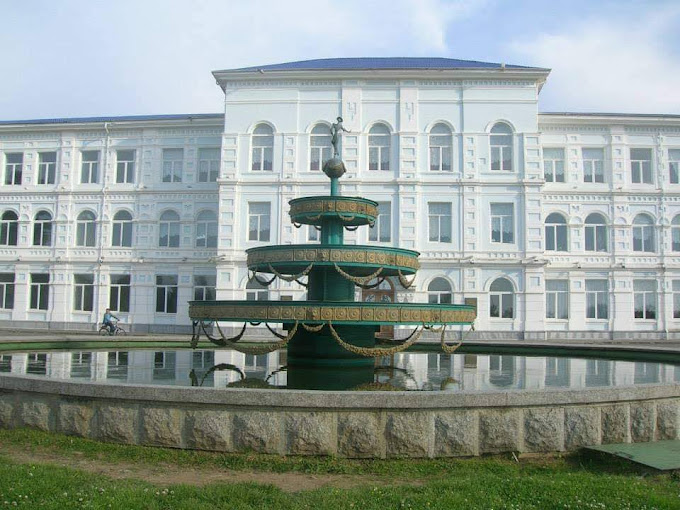
Batumi Shota Rustaveli State University, located in Batumi, Georgia, is a prominent institution in the field of medical education and research. Established in 1945, it has grown to become one of the leading medical universities in Georgia and the wider region. The university is named after the renowned Georgian poet Shota Rustaveli, reflecting its commitment to academic excellence and cultural heritage. With a rich history, modern facilities, and a strong emphasis on research and innovation, Batumi Shota Rustaveli State University attracts students from across the globe seeking high-quality medical education.
Batumi Shota Rustaveli State University traces its origins back to the aftermath of World War II when there was a pressing need for medical professionals in Georgia. The university was founded in 1945 as Batumi Medical Institute. Over the years, it expanded its academic offerings and research activities, eventually achieving university status in 1990. Since then, it has been continually evolving to meet the changing demands of medical education and healthcare.
The university offers a wide range of undergraduate, graduate, and postgraduate programs in medicine, dentistry, pharmacy, nursing, public health, and related fields. The curriculum is designed to provide students with a comprehensive understanding of medical science, clinical skills, and ethical principles. With a focus on evidence-based practice and interdisciplinary collaboration, students receive rigorous training to prepare them for diverse healthcare settings.
Batumi Shota Rustaveli State University boasts a highly qualified faculty comprising experienced clinicians, researchers, and educators. Many faculty members are actively involved in cutting-edge research across various medical specialties, contributing to advancements in healthcare and medical knowledge. The university encourages student participation in research activities, fostering a culture of inquiry and innovation.
The university is equipped with state-of-the-art facilities to support teaching, research, and clinical practice. This includes modern laboratories, simulation centers, lecture halls, libraries, and affiliated hospitals and clinics where students gain hands-on experience under the supervision of skilled professionals. The university continually invests in infrastructure and technology to ensure students have access to the best possible learning environment.
Batum Shota Rustaveli State University is recognized by the Georgian Ministry of Education and Science and accredited by relevant professional bodies. Its medical programs meet international standards, allowing graduates to pursue further education and practice medicine globally. The university's reputation for academic excellence and clinical training has earned it recognition both regionally and internationally.
Batumi Shota Rustaveli State University stands as a beacon of excellence in medical education, research, and healthcare in Georgia. With a legacy of academic distinction, a commitment to innovation, and a global perspective, the university continues to prepare the next generation of healthcare professionals to meet the evolving challenges of the 21st century. Through its rigorous academic programs, world-class faculty, state-of-the-art facilities, and dedication to community service, Batumi Shota Rustaveli State University remains at the forefront of medical education and contributes significantly to the advancement of healthcare regionally and globally.